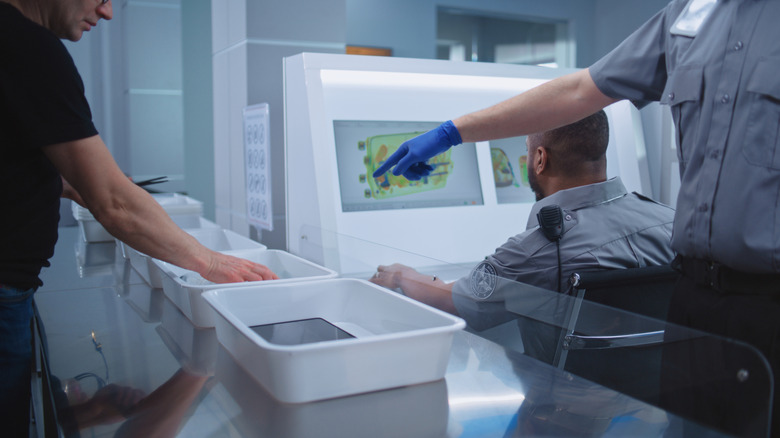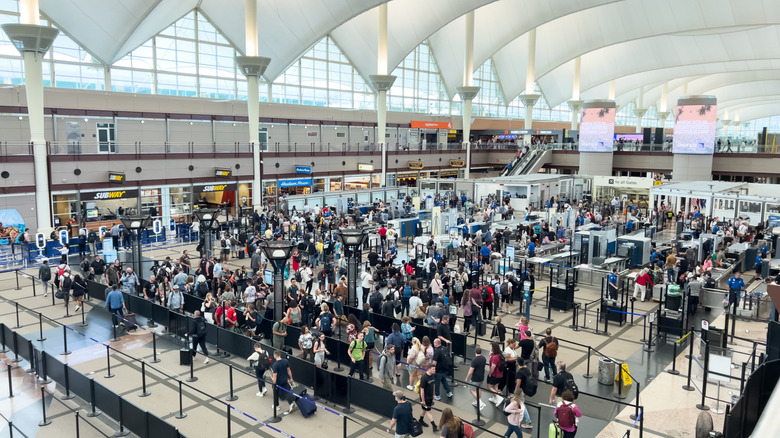The Surprising Reason TSA Might Swab Your Phone Or Laptop Before Your Next Flight
If you've been through airport security checkpoints, you might have noticed TSA agents with white swabs. They test all kinds of things, from luggage to the hands of passengers, but some of the most commonly swabbed objects are phones and laptops. To find out exactly what the TSA is looking for and why they choose certain objects for screening, Islands spoke to the former administrator of the TSA, former deputy director of the FBI, and President of Anderson University John Pistole. Pistole told us: "The primary reason TSA may swab a phone or laptop is to assess whether there are any explosives or explosive residue concealed inside, or whether the passenger has recently handled explosives and then touched their phone/laptop."
If you really don't want your devices swabbed you technically can say no to the test, but don't be surprised if the TSA then won't let you through security. Refusing to let TSA agents see if there are trace amounts of explosives on your things is also seen as pretty suspicious, and Pistole warns they might contact local authorities to question you, too. Don't worry if you're following every tip to zip through the TSA line. Security checks generally only take a few extra seconds for a swab of your phone or laptop, so you probably won't be waiting too long if you get selected for screening. While that might make it seem an inconsequential procedure, according to Pistole, this quick check is right at the heart of what TSA does. He stated: "Checking for explosives both at PAX (passenger) checkpoints and in checked baggage are some of the fundamental means for preventing a catastrophic attack."
How does the TSA descide whose phones and laptops to swab?
While there are some seemingly normal behaviors that will get you watched like a hawk at the airport, John Pistole assured us that having your phone or laptop swabbed really is a random occurrence. While he said it doesn't happen very often, Pistole stated: "This is usually done on a random basis simply to ensure TSA is exercising its due diligence in identifying putative terrorists who may not appear on any Terrorist Watch list." The watch list is also up to 1.8 million records, giving Homeland Security and the TSA a significant number of people to keep an eye on.
There is a certain amount of randomness intentionally built into TSA protocols. This is why TSA rules are annoyingly inconsistent, and why you may have your phone, laptop, bags, wheelchair, or hands swabbed for no apparent reason when going through airport security. While random swabbing may seem like an inefficient and ineffective method, Pistole explained why the TSA can't just rely on intel when it comes to deciding whose devices to swab. He noted: "It is rare that TSA has specific information about whether a particular passenger may be carrying explosives, in which case the PAX should be placed on the No Fly or Selectee list."

